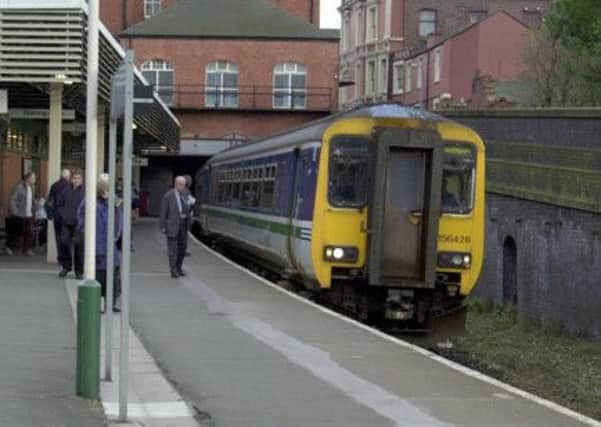Fewer than half of passengers satisfied with Northern Rail


Only 46 per cent of Northern Rail customers were satisfied with services run by the company, which operates local routes in Yorkshire.
FirstTranspennine Express scored only 48 per cent for its services and East Midlands Trains, which operates between South Yorkshire and London, achieved only 50 per cent in the survey by Which?. The publicly-owned and York-based East Coast company scored 59 per cent behind its west coast rival Virgin, which achieved 64 per cent, and Merseyrail, which was the highest rated at 70 per cent. CrossCountry, which runs trains from Yorkshire to the south west and Scotland, scored 52 per cent.
Advertisement
Hide AdAdvertisement
Hide AdLowest ranked of 19 companies were Greater Anglia and Southeastern where the satisfaction score was only 40 per cent. Ten of the 19 companies had satisfaction scores of less than 50 per cent.
Which? executive director Richard Lloyd said: “It’s disappointing to see some train companies consistently falling down on the basics of customer service, with dirty and overcrowded carriages and toilets that don’t work.
“Seven rail franchises end in the next two years and we want to see passengers’ experiences put right at the heart of the tender process so companies respond to consumer expectations and can be held to account if they don’t.”
The survey of 7,415 adults in November also showed:
16 per cent of all passengers experienced a delay on their last journey, rising to 26 per cent for commuters;
Advertisement
Hide AdAdvertisement
Hide Ad21 per cent of commuters said they were likely to have stood on their last journey;
11 per cent said toilets were not in good working order. This rose to 20 per cent for London Midland;
11 per cent said they had cause to complain about their last journey, but 75 per cent did not officially complain. Of those who did, more than half were dissatisfied with its handling.
On average, those surveyed had travelled by train 32 times in the previous 12 months.
Advertisement
Hide AdAdvertisement
Hide AdWhich? also asked what passengers felt would improve their journeys and what they would be prepared to pay more for.
Lower ticket prices were top of the wanted list (60 per cent), with 80 per cent saying fares were too high. People also wanted to see more carriages at peak times (35 per cent) and improved punctuality and reliability (18 per cent – rising to 29 per cent for commuters only). A total of 12 per cent said they want cleaner trains.
But more than half – 53 per cent – said they would not mind paying more if they saw an improvement in service.
Half (49 per cent) would pay more for a more reliable service, and a similar number would pay more to guarantee a seat. A total of 42 per cent would pay more if the money went towards new trains.
Advertisement
Hide AdAdvertisement
Hide AdA spokesman for the rail industry body, the Rail Delivery Group, said: “As we acknowledged last month when the independent watchdog’s far more comprehensive survey found that more than four out of five passengers were satisfied with their overall journey, the industry needs to build on the improvements it has delivered over the last 15 years.
“We are always keen to get feedback from customers, whether good or bad, which has helped the industry attract record numbers of passengers and cut complaints by three-quarters in a decade.”
RMT leader Bob Crow claimed the survey showed Britain’s privatised railways are “delivering lousy service to the public” while money that could be invested in capacity and upgrading is “syphoned off into multi-million pound profits for the rich”.
But Rail Minister Stephen Hammond said: “As well as getting passengers to their destinations, operators should be working hard to improve the overall experience of their customers.
Advertisement
Hide AdAdvertisement
Hide Ad“We are supporting this by investing billions in new state-of-the-art trains that will transform the customer experience across much of the network. This will mean more capacity, improved facilities and quicker and cleaner journeys.”